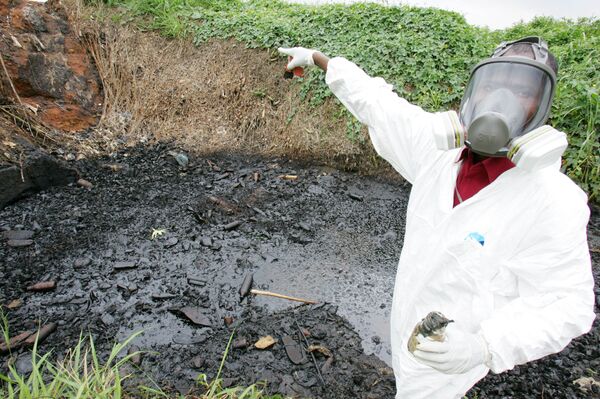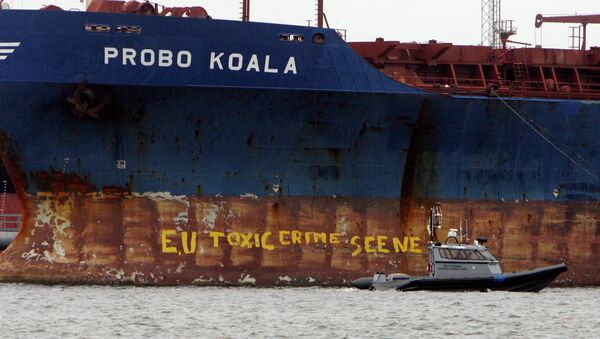In 2006, a ship registered in Panama, the Probo Koala, chartered by the Dutch-based oil and commodity shipping company Trafigura Beheer BV, offloaded toxic waste at the Ivorian port of Abidjan in Ivory Coast. The gas caused by the release of these chemicals is blamed by the UN and the government of Côte d'Ivoire for the deaths of 17 and the injury of over 30,000 Ivorians.
Ten years on from Trafigura took toxic waste and dumped it in #Abidjan https://t.co/p8r7q2FRG4
— AmnestyUK Media Team (@NewsFromAmnesty) August 19, 2016
A decade later, Amnesty International says:
"Trafigura has never disclosed exactly what was in the 540,000 plus litres of toxic waste dumped at 18 sites in Abidjan on 19 August 2006. More than 100,000 people sought medical attention after the dumping for a whole range of symptoms including dizziness, vomiting and breathing problems, and authorities reported 15 deaths."

"A decade on from one of the worst environmental disasters of the 21st century, Trafigura and governments alike have abandoned the victims to suffer a toxic legacy. Meanwhile, Trafigura has rebranded itself, claiming it is a transparent, responsible company.
"This corporate giant, which posted profits of US$1.1 billion in 2015, must not be allowed to completely wash its hands of this disaster," said Lucy Graham, researcher in Amnesty International's Business and Human Rights Team.
'Deep Regret'
In response, Trafigura told Sputnik: "The Probo Koala incident took place 10 years ago. Trafigura's involvement in this incident has been the subject of much comment (not all of it accurate), numerous Court decisions and final settlements.
#Trafigura had decided nt 2 dispose of th toxic waste in Netherlands because proper disposal costs more #CotedIvoire pic.twitter.com/EXZDAYZNSL
— Red Sufi (@AliyMirza) August 19, 2016
"Trafigura has expressed, and reiterates, its deep regret of the impact the incident had, both real and perceived. We have learnt from our experiences.
"Meanwhile the company has maintained its long-established commitment to Africa, creating jobs, paying taxes, building infrastructure, providing fuel and helping Africa to grow."
In a 2012 joint report, Amnesty International and Greenpeace documented how Trafigura's refusal to disclose the contents of the toxic waste hampered the clean-up and medical response to the disaster.
When Amnesty International wrote to Trafigura in June asking it to seize the tenth anniversary as an opportunity to finally disclose the contents of the waste it replied: "We have nothing further to add to what has been said [to Amnesty International in August 2012] and we see no purpose in further discussion."



